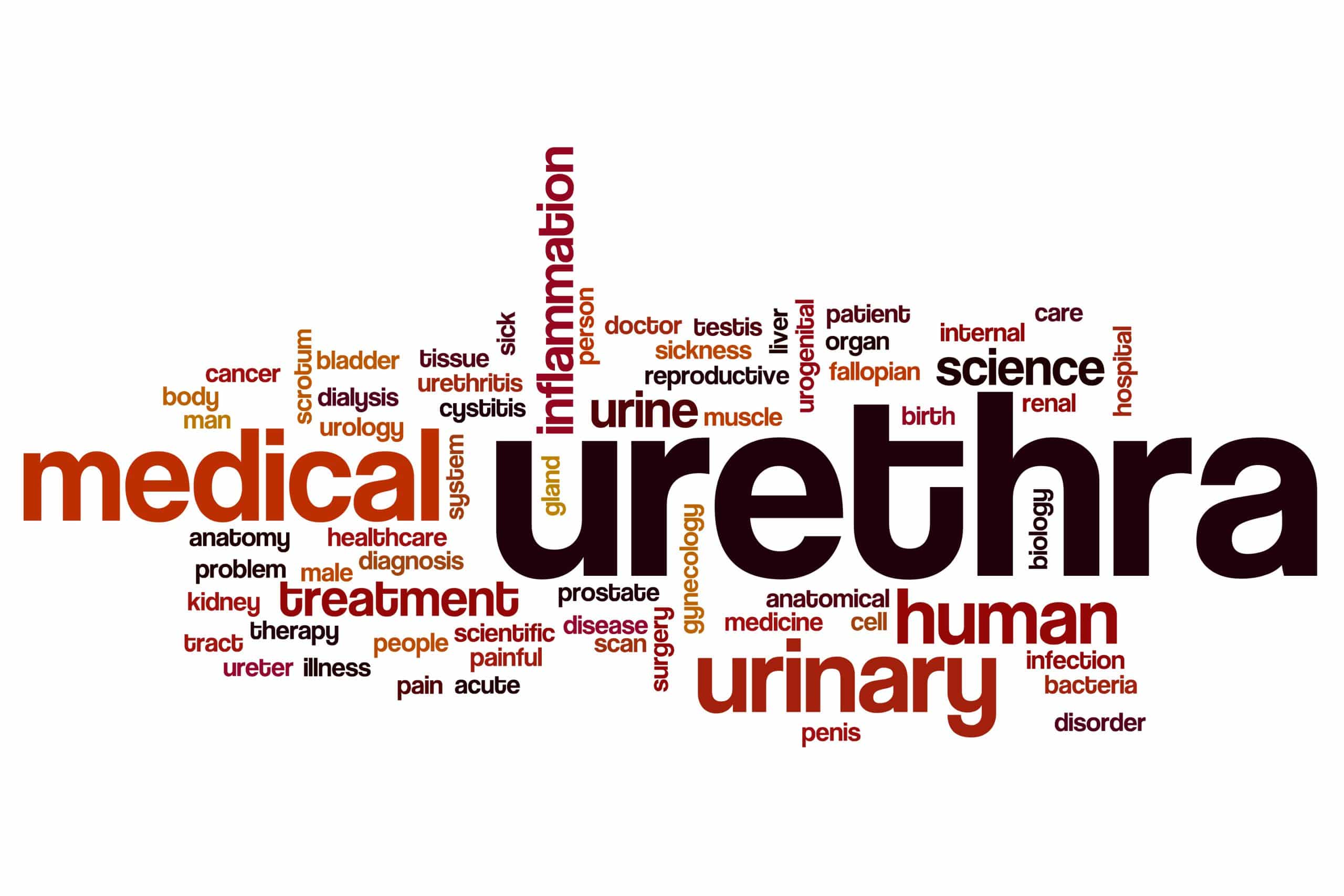Frequent Urinary Tract Infection (UTI)
in Florida
UTI Solutions
Understanding Male Frequent UTI
More Than Just Discomfort
It’s a discomfort that many men might not discuss openly, but it can deeply affect their day-to-day lives. Imagine the constant urge to use the bathroom, the burning sensation when you do, and the persistent feeling that something isn’t quite right.
For men experiencing frequent urinary tract infections (UTIs), these symptoms are all too familiar. It’s not just about physical discomfort; the recurrent nature of the infections can bring about anxiety, hinder social interactions, and make even routine tasks daunting.
What is Male Frequent UTI?
A urinary tract infection (UTI) is an infection in any part of the urinary system, including the bladder, kidneys, ureters, and urethra. While UTIs are commonly associated with women, men are not immune. When UTIs occur repeatedly in men, it’s termed as male frequent UTI. Due to the male urinary tract’s design, UTIs are less common in men than in women. However, when they do occur in men, they can be more complicated and may indicate an underlying issue.
Prostate Cancer Symptoms Through the Lens of Functional and Regenerative Medicine
When examining the symptoms of frequent UTIs in males through the lens of functional and regenerative medicine, we first recognize the standard clinical symptoms and then consider how underlying physiological, metabolic, and structural imbalances may be contributing. Let’s break this down:
Standard Clinical Symptoms:
- Dysuria: Pain or burning during urination.
- Urgency: A sudden, strong desire to urinate.
- Frequency: Needing to urinate more often than usual.
- Hematuria: Blood in the urine, either visible or detected on a microscopic level.
- Cloudy or Foul-Smelling Urine: Due to the presence of bacteria or pus.
- Pelvic or Rectal Pain: Particularly in men, this can be a sign of prostatitis.
- Fever and Chills: Indicative of a more severe infection that might have ascended to the kidneys (pyelonephritis).
Functional Medicine Perspective on Underlying Factors:
Functional medicine often asks, “Why is this happening?” and seeks to identify the root causes that might predispose someone to recurrent symptoms.
- Gut Dysbiosis: The health of the gut microbiome is closely linked to UTIs, especially given that many UTIs are caused by E. coli strains originating from the gut. Imbalances in the gut flora may contribute to the recurrence.
- Dietary Irritants: Consumption of irritants, such as spicy foods, caffeine, or acidic foods, might exacerbate urinary symptoms.
- Chronic Low-grade Inflammation: Inflammation in the body can weaken the immune response, making individuals more susceptible to infections. Symptoms such as fatigue, joint pain, or brain fog can accompany this inflammation.
- Stress and Hormonal Imbalances: Chronic stress can affect the immune system and hormone balance, potentially leading to a weakened defense against infections.
Regenerative Medicine Perspective
Regenerative medicine focuses on repairing and restoring damaged tissues, aiming for a holistic restoration of function.
- Tissue Integrity: If there’s compromised tissue integrity in the urinary tract from prior infections or other reasons, it can make the area more susceptible to recurrent infections.
- Bladder Health: The bladder’s epithelial lining and its ability to regenerate and repair can impact susceptibility to infections.
- Cellular Health: On a cellular level, the health of immune cells and their ability to effectively combat bacterial invaders can influence UTI frequency.
- Stem Cell Function: In the context of tissue repair and regeneration, the function of local stem cells in the urinary tract can play a role in resilience against infections.
Considering the symptoms of frequent UTIs in males through the functional and regenerative medicine lens involves a more holistic view. Not only are the direct symptoms addressed, but the underlying systems, imbalances, and tissue health are also examined to provide a comprehensive approach to treatment and prevention.
What Causes Male Frequent UTI?
When viewed from a functional and regenerative medicine perspective, the causes and factors that contribute to frequent UTIs in men can be multifaceted. Here’s an in-depth look:
Anatomical Factors
- Prostatic Enlargement: Benign prostatic hyperplasia (BPH) can lead to urinary retention, which can make it easier for bacteria to grow.
- Congenital Abnormalities: Any anatomical abnormality in the urinary tract can predispose a person to UTIs. This includes urethral strictures and vesicoureteral reflux.
- Stones: Kidney or bladder stones can harbor bacteria and cause repeated infections.
Functional Factors
- Bladder Dysfunction: Any condition that prevents the bladder from emptying completely can be a risk factor.
- Neurogenic Bladder: Conditions such as spinal cord injuries, multiple sclerosis, or other neurological disorders can impair bladder function.
Immunological Factors
- Chronic Inflammation: Chronic low-grade inflammation, which can be due to various reasons including poor diet, chronic stress, or other diseases, can weaken the immune system’s ability to fend off infections.
- Immune System Dysfunction: Underlying immune disorders can make it difficult for the body to clear bacterial infections.
Hormonal Factors
- Andropause: Declining testosterone levels in older men might affect the urinary system’s resistance to infections, although the exact mechanisms aren’t clear.
Lifestyle and Environmental Factors
- Diet: A diet high in sugar and processed foods can foster an environment conducive to bacterial growth and reduce immune function. Additionally, certain foods and drinks can irritate the bladder.
- Gut Dysbiosis: An imbalance in the gut microbiome can influence UTIs. Some bacteria that cause UTIs originate from the gut. A disrupted gut flora can also weaken overall immune function.
- Dehydration: Not drinking enough water can make the urine more concentrated, which can foster bacterial growth.
- Catheter Use: Frequent catheterization or long-term catheter use can increase the risk of UTIs.
Biofilm Formation
- Some bacteria can form biofilms, which are like protective “shields” that make them resistant to antibiotics. This can lead to recurrent infections.
Regenerative Medicine Aspect
- Tissue Damage: Frequent infections can cause tissue damage, making the urinary tract more susceptible to future infections. Regenerative medicine seeks to restore this damaged tissue, possibly using therapies like stem cells, growth factors, or tissue engineering.
Drug-Related Causes
- Antibiotic Use: Frequent use of antibiotics can lead to antibiotic-resistant bacteria, making UTIs harder to treat.
- Other Medications: Some medications might interfere with immune function or bladder function.
Functional and Regenerative Medicine
vs. Traditional Urology Care
While traditional urology care primarily focuses on symptom management through medications and surgical procedures, functional and regenerative medicine adopts a holistic approach. The aim is to understand and treat the root causes of the problem.
Root Cause Approach:
We assess the whole body, considering factors like diet, lifestyle, microvasculature, hormone balance, metabolic health, hydration and mental well-being that frequently contribute to prostatitis.
Personalized Treatments:
No two bodies are the same, so why should treatments be? The Doctors Studio medical team tailors treatments to individual needs, addressing imbalances and optimizing function.
Regenerative Techniques:
This approach uses therapies that aim to heal and regenerate damaged tissues, providing longer-lasting results and improved health and wellness.
Functional Medicine Approach:
Takes a holistic approach. It doesn’t just look at the disease but aims to understand its root cause. This approach might involve looking at genetic predispositions, environmental exposures, lifestyle factors, and more. The idea is not just to treat but to prevent, rejuvenate, and regenerate. By addressing the underlying causes and imbalances that contribute to prostate cancer, functional and regenerative medicine offers a more comprehensive approach to health and well-being.
-
-
- Comprehensive assessment to understand the patient’s entire health picture including specialty labs.
- Dietary and lifestyle changes tailored to the patient’s lab results.
- Use of natural supplements to target inflammation and promote healing.
- Stress management and physical therapies.
- Sleep optimization and restoration
- Personalized treatment plans that evolve with the patient’s progress.
- IV Nutrient/Ozone/UBI “TRIFECTA” Therapy
- EBOO, an oxygenation and ozonation process enhances the body’s immune response, reduces inflammation, and promotes healing.
- Hormone replacement therapy (TRT)
- Nutritional therapy to optimize cellular health
- Detoxification to rid the body of potential carcinogens
- Stress management, as chronic stress, can suppress the immune system
- Methylene Blue for urinary tract and prostatitis acts as a mild antiseptic, reducing bacterial activity and inflammation in the urinary tract. Its anti-inflammatory effects aid in alleviating symptoms of prostatitis
-
Regenerative Medicine Approach:
-
-
- Ozone injections to promote healing directly in the prostate tissue.
- PEMF (Pulsed Electromagnetic Field Therapy) to enhance healing and reduce inflammation.
- Neural therapy for chronic pelvic pain syndromes
- Custom antibiotic, antiviral, anti-fungal and anti-inflammatory prostate injection designed based on lab data collection.
- LI-ECSW (shockwave) to correct tight pelvic floor muscles and to stimulate tissue regeneration and blood flow
- Platelet Rich Plasma Prostate Injections
- Exosome and Stem Cell IV Infusions
- IV Chelation Therapy for removal of toxic burden
- Peptides specifically for healthy prostate tissue regeneration, decrease of inflammation, and hormone optimization.
-
In contrast, traditional urology might prescribe antibiotics, even if bacteria aren’t present, or recommend procedures that offer temporary relief. While both approaches have their merits, functional and regenerative medicine focus on long-term healing and health optimization, rather than merely putting a band-aid on the symptoms.
Seeking relief from frequent UTI’s?
“Through our unique approach, we explore a wide range of factors to determine what is causing
your prostate to act up.”
Interested in Improving Your Prostate Health?
How To Get Started

Choose an Assessment Plan
Start the process by determining your current
wellness status.

Schedule a Consultation
Meet with an expert practitioner to review the results of you assessment and discuss your customized treatment plan.

Begin Your Wellness Journey
It's time to get back to balance and experience optimal wellness and quality of life



